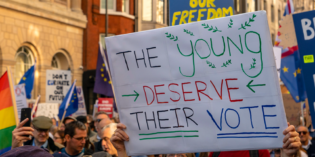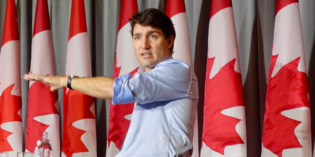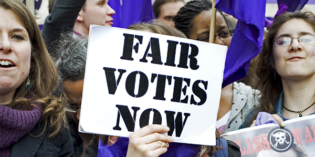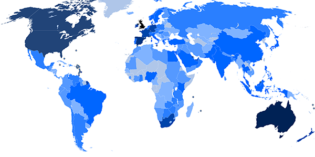Tag: Electoral Reform

General election 2019: a postcode lottery
The 2019 general election produced a strong Conservative majority in the House of Commons, with the first-past-the-post electoral system delivering the party 56% of parliamentary seats on the basis of 43.6% of all votes. Beyond this national figure, Ian Simpson explains, the nations and regions of the UK returned some even more disproportional results, meaning millions of voters across the UK are left unrepresented in Parliament.

What happens when the voting age is lowered to 16? A decade of evidence from Austria
Lowering the voting age to 16 is being discussed in several countries, but how do 16- and 17-year-olds compare to older first-time voters? In a new book chapter, Julian Aichholzer and Sylvia Kritzinger answer this question by looking at a decade of empirical evidence from Austria, where voting at 16 was introduced for national elections in 2007. Overall, they find that the evidence is encouraging for supporters of voting age reform, with younger citizens in general voting more than older first-time voters and expressing relatively high levels of trust in democratic participation. This has implications for policy-makers and contributes to an evidence-based debate about youth political engagement and electoral turnout.

Voters dislike disproportionality in electoral systems – even when it benefits the party they support
Taking advantage of a uniquely designed survey experiment, Carolina Plescia, André Blais and John Högström investigate the effect of proportionality on voter support for voting rules in four countries, namely Austria, the UK, Ireland and Sweden. They find that voters for both small and large parties dislike disproportionality in electoral systems, with little cross-country variation.

Canada’s 2019 federal election: is the first-past-the-post electoral system broken?
In Canada’s recent federal election, the most popular party by vote share, the Conservative Party, did not gain the most seats in parliament and smaller parties also lost out, to the benefit of Justin Trudeau’s Liberal Party, who will form a minority government. Chris Stafford assesses what this means for the country’s on-going debate on electoral reform.

Requiring voter ID in British elections suggests the government is adopting US ‘voter suppression’ tactics
This week’s Queen’s Speech revived proposals to introduce photographic ID requirements for voting in British elections. The Democratic Audit team assess the available evidence on the likely consequence of such a measure, and consider whether the legislation tackles the right priorities for improving our elections on which there is consensus, or suggests moves to enhance Tory election chances via excluding voters presumed unfavourable to them.

Book Review | Rethinking US Election Law: Unskewing the System by Steven Mulroy
In Rethinking US Election Law: Unskewing the System, Steven Mulroy offers comprehensive considerations of arguments in favour of and against proposed reforms of US election law. This is an excellent and engaging read that exposes the structural flaws in the US government system and provides tangible, achievable proposals to address them, writes Erica Frazier.

Academics and experts make the case for modernising Britain’s antiquated election rules
The House of Commons’ Public Administration and Constitutional Affairs committee has been gathering evidence on the rules governing the UK’s elections. Michela Palese from the Electoral Reform Society summarises key areas in need of reform.

Brexit has shown the limits of Britain’s broken ‘Westminster model’ of politics
The results of the recent European Parliament elections demonstrate how the traditional model of UK politics based on two ‘main’ parties is fracturing under the pressures of the Brexit process. Jess Garland sets out some proposals for reforming the system in line with voters’ wishes for a more cooperative style of politics.

The UK needs a new electoral system not a new political party
The new Independent Group of former Labour and Conservative MPs says it wishes to fix the UK’s broken politics. However, argues Jack Bridgewater, the first step in fixing politics at the centre is to reform the electoral system.

‘Votes for life’ for overseas electors? Principles, process and party politics
A Private Member’s Bill to extend the franchise to all British citizens living abroad is currently under consideration in Parliament. Susan Collard explains how these proposed reforms, which have significant implications for democratic participation, have become caught up in parliamentary procedure and partisan disputes.


 Democratic Audit's core funding is provided by the Joseph Rowntree Charitable Trust. Additional funding is provided by the London School of Economics.
Democratic Audit's core funding is provided by the Joseph Rowntree Charitable Trust. Additional funding is provided by the London School of Economics.